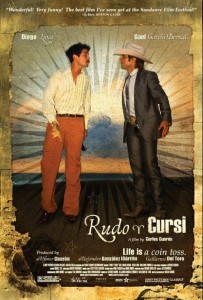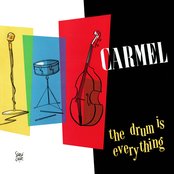Okay, I’ve been here for a couple of years and a few months now, people expect me to be fluent in Spanish, but what does that mean?
Well I can understand pretty much everything on a day to day basis, I can follow the news (apart from when they start going on about individual politicians, I still get lost over who is in which party in what community and has done which crime). I can function alright on the telephone, I can argue with plumbers, I can go to the ironmongers and talk about hinges (bisagras) for the kitchen cupboards… so yes, in that sense I’m functionally fluent albeit with a vocabulary of an eleven year old who skipped a lot of school.

¿You want your mexican slang, güey? You got it...
But put me in a bar with loud music with a group of six or seven Spanish speakers (as I was on Saturday thanks to a very kind invitation from some of my students) and I struggle. I can understand the majority of what is said, except for the jokes, the cultural references and the slang. Which, when you think about it, would be the majority of a conversation I’d have in English with English mates. I should have a sign made up “En inglés estoy inteligente y ingenioso” to hang around my neck as I listen. I’m not complaining (I really did enjoy myself)… more just mentioning that it’s frustrating… I know that it will take many many years to reach a level of wittiness in Spanish, it’s just something I occasionally miss.
Then of course there’s the times when you put on a film and it’s Argentine (although I don’t have such a problem there) or Mexican. I watched Rudo y Cursi last night and after the first five minutes I had to go and download the Spanish subtitles. Mexican Spanish is full of slang (at least the Spanish in this film is. It’s probably analagous to watching Trainspotting). They kept saying “güey” as in “¿Que haces güey?” which I figured out was probably like mate (only a little less polite) and one of the characters was argentine so he kept saying “boludo”, add to that the “pendejo” and “chingar” (rude, just a bit) and the pronunciation “‘apa” for “papa” and the like meant that the subtitles were essential.
Damn fine film though.
So to practice, and improve… entonces para practicar y mejorar… otra vez pero en español.
Bueno, estoy aquí dos años y pocos meses, hay una expectación que lo domine yo el español, pero ¿Qué significa eso?
Pues, entiendo bastante bien casi todo día en día. Puedo entender las noticias (aparte de cuando hablen de políticos, me confunde quién es quién en cual partido, en cual comunidad y quién ha hecho cual crimen). Me desempeño bien en el teléfono, discuto con los fontaneros, puedo ir a la ferretería y hablar sobre bisagras para los muebles de la cocina… entonces sí, en este sentido la domino la lengua aun que tenga el vocabulario de un niño que no iba mucho al colegio.
Pero si estoy en un pub con la música alta y un grupo de seis o siete españoles (como estuve el sábado pasado gracias a una invitación muy amable de unas alumnas) me quede difícil . Entiendo la mayoría de lo que hablan, menos los chistes, los referencias a la cultura y el argot que, si lo piensas, sería la mayoría de una conversación que lo tendría con mis amigos ingleses. Debería pedir para un cartel que dice “In English I’m clever and witty” para poner en mi cuello mientras escucho. No quejo (me pasó bien) mas digo que es un poco frustrante. Ya lo sé que llevará muchos años para conseguir el nivel para ser ingenioso en español, solo es algo que echo de menos de vez en cuando.
Hay tiempos cuando se pone una película argentina (aun que no tenga tan problemas con ellas) o mexicana, por supuesto. La vi Rudo y Cursi anoche y con cinco minutitos tuve que bajar los subtítulos españoles. El español del Mexico esta lleno del argot (al menos esta así en la película esta, probable es equivalente ver “Trainspotting” en inglés). Decían “güey” como “¿Que haces güey?” que pensaba que significaba “tío”, pero menos educado, y uno de ellos era argentino entonces decía “boludo”, con eso y el “pendejo” y “chingar” (palabras vulgares) y como pronunciaban “papa” como “apa” y tal resultó que necesitaba los subtítulos.
Pero muy buena la película.






